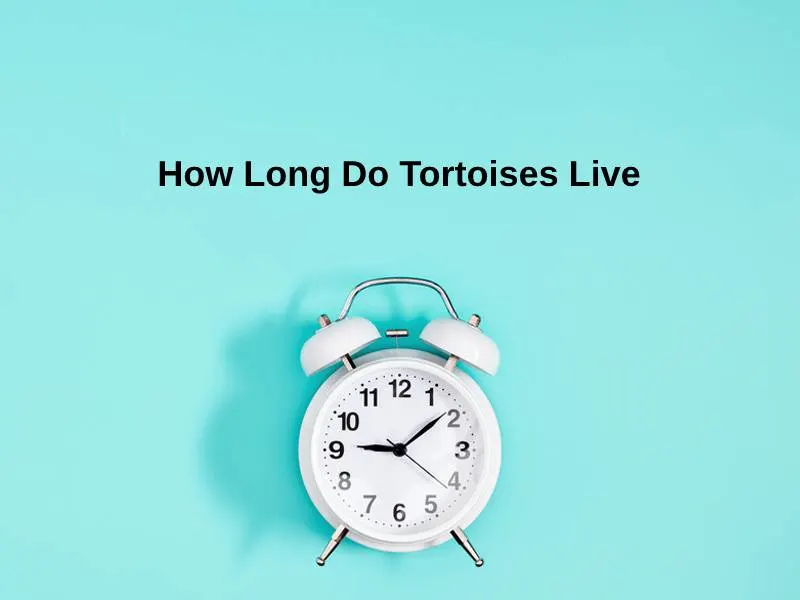Exact Answer: 50 To 100 Years
Our universe is full of paradoxes and facts. Like the universe, our mother earth is too full of mystery and facts, that is regardless not known or discovered. According to scientists, our earth is 4.54 billion years old, and in between the period millions of species were created and extinguished too.
All the species that were living in the past have different lifespans, and the species which are alive these days have a different life span. It is just because of natural selection and the type of environment the species used to live in. When first-time human civilization came to its existence, they commenced with a suitable pet that helps them in their day-to-day activities.
That’s why humans try to discern the lifespan of the creature. It may help them to choose the best having a better lifespan which saves time. Nowadays, the tortoise is also a pet that people love to have, and also it will live for 50 to 100 years.

How Long Do Tortoises Live?
Tortoises are quite pretty and awesome animals. Throughout the world, different types of tortoises are living in different habitats. The lifespan depends on various factors like habitat, care, diet so, the exact lifespan is not known.
They are long-lived. Scientific estimates say that their average lifespan is between 50 to 100 years. However, certain studies say that wild tortoises live as long as 150 years in the wild.
Adwaitya, the name of a giant tortoise who had died at the age of 255 years in 2006. There are dozens of species of tortoise available on the planet, and more than 14 species are used as pets. All the species lifespans exceed 50 years.
Some of the tortoises types are Red foot tortoise, the yellow-foot tortoise, Hermanns tortoise, Egyptian tortoise, Greek tortoise, Hingeback tortoise, pancake tortoise, sulcata tortoise, Indian star tortoise, Burmese star tortoise, Srilankan star tortoise, leopard tortoise, Aldabra tortoise. These types of tortoises can even be kept as a pet. Among these, the Aldabra tortoise lifespan is more than the other, and between 80 to 100 years.
Tortoise has existed for millions of years. They are the most long-lived member of the reptile family.
Why Do Tortoises Live That Long?
Scientists believed that the long lifespan of giant tortoises is just because of gene variants that tweak how their DNA is repaired and their bodies respond to inflammation and the development of cancer.
In tortoises, they have a slow metabolism, and that’s why they consume energy at a slower rate, unlike other smaller or faster animals. They also may make a deep noise accompanied by a hiss, when they are ready to take food in their mouth.
Before eating, first, they test the food by taking small bites. Because of the shell, the tortoise is slow. “Pre-shell” turtles were much faster than the present-day turtles with a shell, it’s believed by most anthropologists.
Tortoise can not reach a fast speed on land, because of less range of motion and flexibility. Tortoise can expire for several reasons like starvation, poor quality diet, unsanitary conditions, stress, and injuries. Like other animals, tortoises also like certain types of touch and will respond to happiness.
When someone touches the shell of the tortoise, they can feel it in their body underneath, although the sensation is not so strong if they tickle the other body part like the head, neck, or leg.
Conclusion
Unlike other species, tortoises also have a delayed reproductive schedule. Most of the tortoise species take 20 years to become sexually mature. Unlike cats, dogs, wolves reproduce during spring, where tortoises reproduce during the winter season. The best time for them to reproduce is between December and May.
Captive tortoises can live up to 70 years, and that is a popular pet among people. If the owner allows his/her pet to live in a poor environment, then definitely the lifespan will decrease. Proper diet, hygiene, and a stress-free environment are the factors that also enhance the lifespan of the tortoise.
Malnutrition or starvation also decreases the life span of a tortoise. When a tortoise is hungry, the digestive system becomes weak and unable to digest properly. The undigested food will rot inside and result in bacterial illnesses.